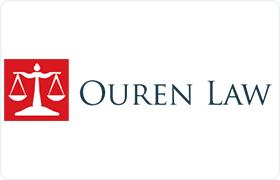Moxee White Collar Crime Lawyer, Washington, page 3
Sponsored Law Firm
-
 x
x

Click For More Info:
-
Ouren Law
4101 South Union Street Kennewick, WA 99337» view mapCriminal Defense Dedicated. Straightforward. Tough.
With more than a decade of experience, Attorney Ouren has helped many clients achieve successful results in their family law and criminal law matters.
800-971-6601
Not enough matches for Moxee White Collar Crime lawyer.
Below are all Moxee Criminal lawyers.
Tamara Ann Hanlon
Federal Appellate Practice, State Government, Criminal, Legal Malpractice
Status: In Good Standing Licensed: 26 Years
Gregory Lee Scott
Litigation, Federal, DUI-DWI, Criminal, Merger & Acquisition
Status: In Good Standing Licensed: 37 Years
Robert Stewart Young
Federal, Family Law, Criminal, Collection
Status: In Good Standing Licensed: 45 Years
Charles Henri Dold
Defense Contracts, Litigation, Criminal
Status: In Good Standing Licensed: 46 Years
Jeffrey Brian West
Defense Contracts, Traffic, Federal, Criminal
Status: In Good Standing Licensed: 35 Years
 Kimberly Ouren Kennewick, WA
Kimberly Ouren Kennewick, WA Practice AreasExpertise
Practice AreasExpertise
